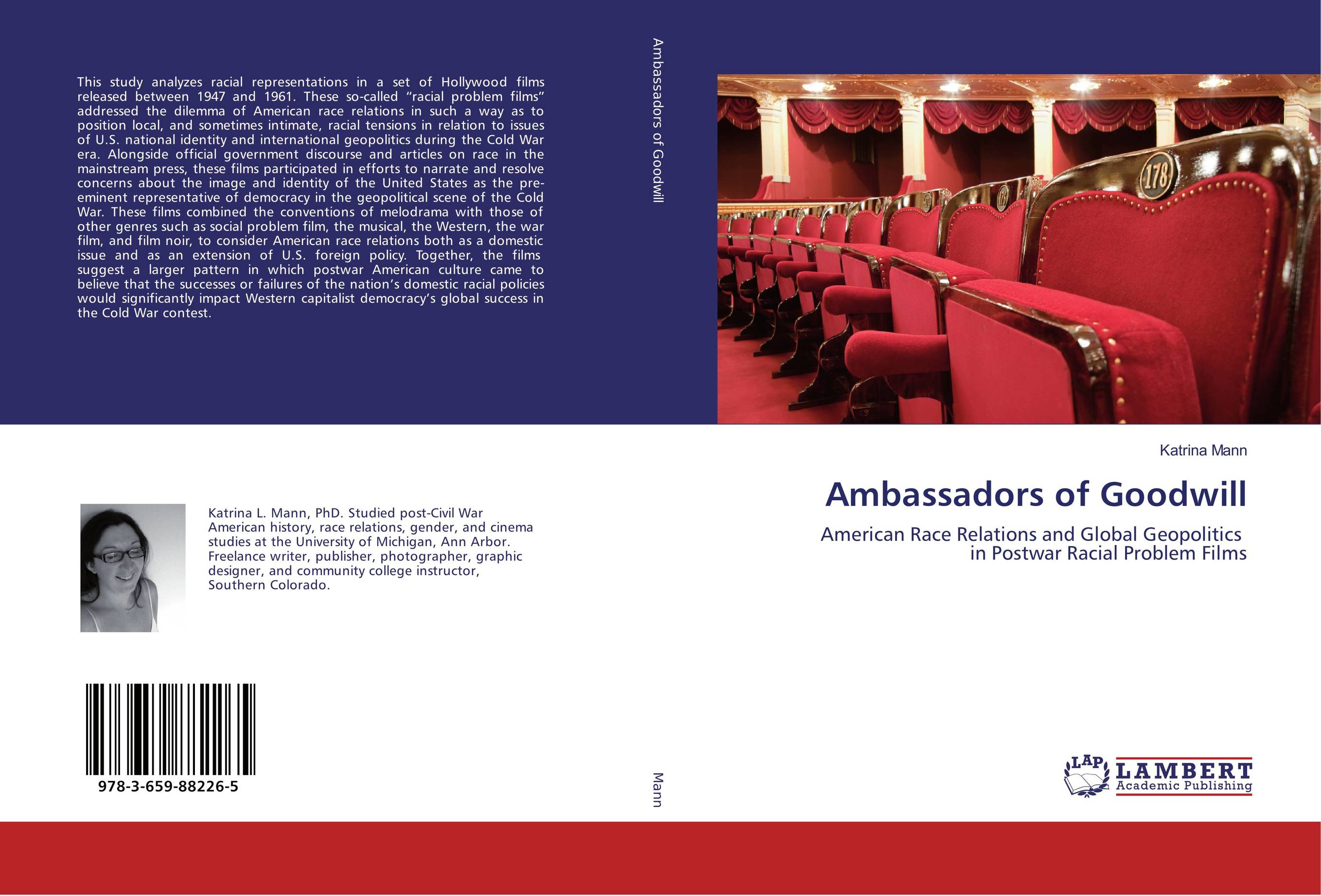| Поиск по каталогу |
|
(строгое соответствие)
|
- Профессиональная
- Научно-популярная
- Художественная
- Публицистика
- Детская
- Искусство
- Хобби, семья, дом
- Спорт
- Путеводители
- Блокноты, тетради, открытки
Ambassadors of Goodwill. American Race Relations and Global Geopolitics in Postwar Racial Problem Films

В наличии
| Местонахождение: Алматы | Состояние экземпляра: новый |

Бумажная
версия
версия
Автор: Katrina Mann
ISBN: 9783659882265
Год издания: 2016
Формат книги: 60×90/16 (145×215 мм)
Количество страниц: 484
Издательство: LAP LAMBERT Academic Publishing
Цена: 66825 тг
Положить в корзину
| Способы доставки в город Алматы * комплектация (срок до отгрузки) не более 2 рабочих дней |
| Самовывоз из города Алматы (пункты самовывоза партнёра CDEK) |
| Курьерская доставка CDEK из города Москва |
| Доставка Почтой России из города Москва |
Аннотация: This study analyzes racial representations in a set of Hollywood films released between 1947 and 1961. These so-called “racial problem films” addressed the dilemma of American race relations in such a way as to position local, and sometimes intimate, racial tensions in relation to issues of U.S. national identity and international geopolitics during the Cold War era. Alongside official government discourse and articles on race in the mainstream press, these films participated in efforts to narrate and resolve concerns about the image and identity of the United States as the pre-eminent representative of democracy in the geopolitical scene of the Cold War. These films combined the conventions of melodrama with those of other genres such as social problem film, the musical, the Western, the war film, and film noir, to consider American race relations both as a domestic issue and as an extension of U.S. foreign policy. Together, the films suggest a larger pattern in which postwar American culture came to believe that the successes or failures of the nation’s domestic racial policies would significantly impact Western capitalist democracy’s global success in the Cold War contest.
Ключевые слова: Cold War, Geopolitics, Melodrama, Postwar Japan, Puerto Ricans, Segregation, Racial Integration, U.S.-Mexico Border, Racial Problem Films



